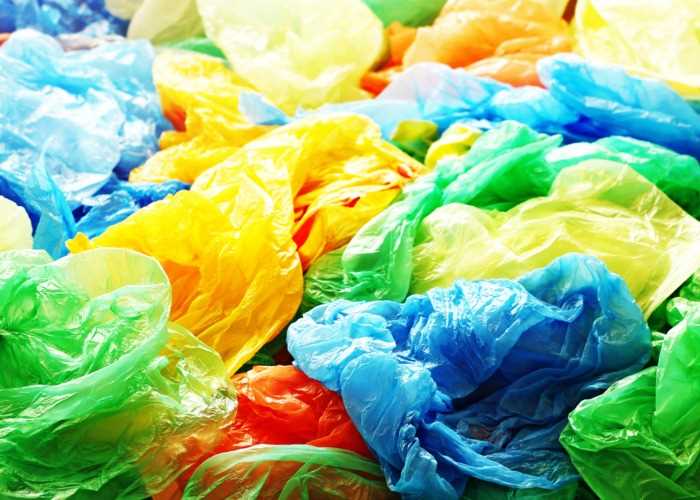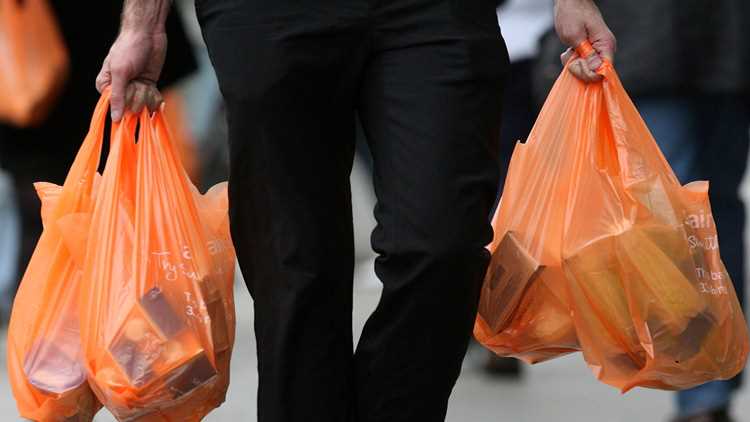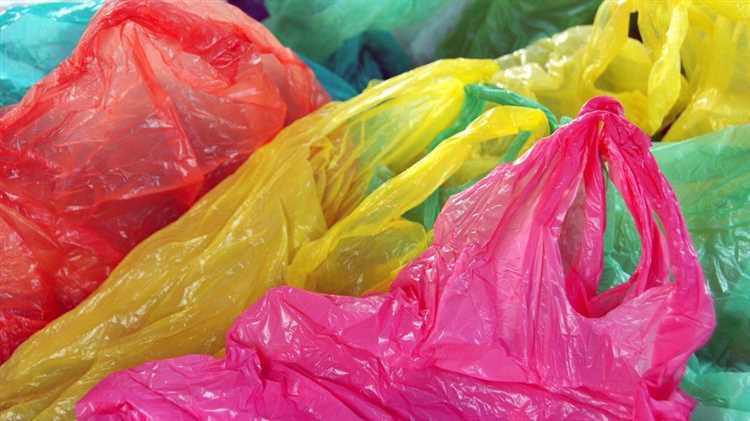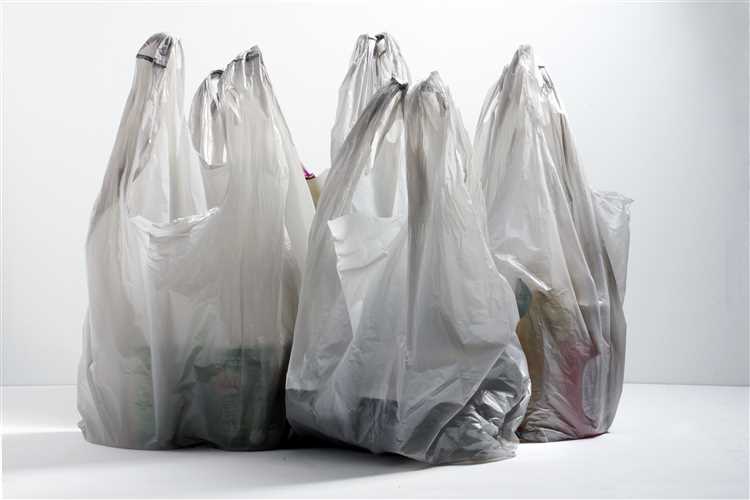
Plastic bags have become a ubiquitous part of our daily lives, but their convenience comes at a cost. While they may seem cheap and disposable, the financial impact of plastic bags on the economy is significant.
First and foremost, the production and distribution of plastic bags require a substantial amount of resources and energy. The extraction of oil, the main raw material used in the production of plastic bags, has both environmental and financial consequences. The process of refining and converting oil into plastic bags is energy-intensive, contributing to greenhouse gas emissions and the overall cost of production.
Furthermore, the disposal of plastic bags poses a significant financial burden on local governments and municipalities. Plastic bags are not biodegradable and can take hundreds of years to break down. The cost of managing and processing plastic bag waste includes collecting, sorting, and transporting the bags to landfills or recycling facilities. These expenses ultimately fall on taxpayers and contribute to the strain on local budgets.
Moreover, the environmental impact of plastic bags can have wide-ranging economic consequences. Plastic bags are a major source of pollution, especially in marine ecosystems. The presence of plastic bags in water bodies not only harms wildlife but also affects industries such as fishing and tourism. The cleanup and restoration efforts required to mitigate the damage caused by plastic bags can be financially burdensome and have a negative impact on local economies.
In conclusion, the financial impact of plastic bags on the economy should not be underestimated. The production, disposal, and environmental consequences of plastic bags all contribute to their overall cost. By understanding these financial implications, we can make more informed decisions regarding the use and management of plastic bags and explore alternative solutions that are both economically and environmentally sustainable.
- Plastic Bags and the Economy: How They Impact Finances
- Environmental Issues Caused by Plastic Bags
- Pollution of Land and Water
- Threat to Marine Life
- Economic Impact of Plastic Bags
- Positive Economic Effects
- Negative Economic Effects
- Potential Solutions
- Effects on Local Businesses
- Negative Effects on Local Businesses
- Positive Effects on Local Businesses
- Costs of Managing Plastic Bag Waste
- Transitioning to Sustainable Alternatives
- Q&A:
- What is the financial impact of plastic bags on the economy?
- How much do plastic bags cost the economy?
- Are plastic bag bans good for the economy?
- How do plastic bags affect businesses?
- What are the alternatives to plastic bags?
Plastic Bags and the Economy: How They Impact Finances
In recent years, the use of plastic bags has become a topic of concern due to their significant financial impact on economies worldwide. Plastic bags, although convenient for consumers, have hidden costs that affect businesses, governments, and individuals.
One of the major financial impacts of plastic bags is the cost of production. Plastic bags require non-renewable resources such as crude oil and natural gas for their production. The extraction and processing of these resources come with hefty price tags, which ultimately contribute to the overall cost of plastic bags. As a result, businesses that produce and sell plastic bags have to pass on these expenses to the consumers, affecting their budgets.
Additionally, the disposal of plastic bags is another financial burden on the economy. Plastic bags are not easily biodegradable, meaning they can persist in the environment for hundreds of years. Disposing of them requires waste management systems, which often come at a cost to local governments and taxpayers. These costs include landfill maintenance, recycling facilities, and clean-up efforts when plastic bags end up as litter in parks, waterways, or streets.
The negative impact on industries is yet another financial consequence of plastic bags. Some sectors, such as tourism, agriculture, and fishing, heavily rely on clean environments to thrive. When plastic bags end up in natural habitats like oceans or forests, they can cause damages to crucial ecosystems, affecting industries dependent on these resources. Restoring and mitigating these damages requires significant investment, which ultimately impacts the overall economy.
Moreover, the use of plastic bags also affects the financial well-being of individuals. Consumers may not realize the cumulative expense of purchasing plastic bags regularly. These costs can add up over time, draining personal finances. Furthermore, the negative environmental consequences of plastic bags, such as pollution or climate change, can have indirect financial impacts on individuals through increased healthcare expenses or reduced agricultural productivity.
In conclusion, plastic bags have a substantial financial impact on the economy. From production costs to waste management expenses and damages to industries, the hidden costs of plastic bags affect businesses, governments, and individuals alike. Understanding these financial impacts is crucial to implement effective policies and encourage sustainable alternatives.
Environmental Issues Caused by Plastic Bags
Plastic bags are a significant source of pollution and pose numerous environmental issues. The widespread use of plastic bags has led to several negative impacts on ecosystems, wildlife, and natural resources.
Pollution of Land and Water

Plastic bags are non-biodegradable and can take hundreds of years to decompose. When not properly disposed of, they end up in landfills or as litter in the environment. Over time, the accumulated plastic bags contribute to land pollution and clog waterways, affecting the natural flow of rivers and streams.
In addition, plastic bags can break down into smaller pieces called microplastics, which are less than 5 millimeters in size. These microplastics can contaminate soil and water, posing a threat to plants, animals, and ultimately human health.
Threat to Marine Life

Plastic bags pose a severe threat to marine life. When discarded or blown into the ocean, they are often mistaken for food by marine animals such as turtles, seabirds, and fish. Ingesting plastic bags can cause internal injuries, blockages in the digestive system, and even death. Marine animals can also get entangled in plastic bags, leading to suffocation, immobilization, and other harmful effects.
The presence of plastic bags in the ocean has a cascading impact on entire marine ecosystems. In addition to direct harm to individual animals, plastic bags and other marine debris can disrupt food chains, alter habitats, and contribute to the spread of invasive species.
| Environmental Issues Caused by Plastic Bags | Impact |
|---|---|
| Pollution of land and water | Landfills, clogged waterways, soil and water contamination |
| Threat to marine life | Injuries, blockages, entanglement, disruption of ecosystems |
It is necessary to address these environmental issues caused by plastic bags through sustainable alternatives, such as reusable bags, recycling programs, and public awareness campaigns. By reducing the use and improper disposal of plastic bags, we can help protect our environment and preserve the delicate balance of ecosystems for future generations.
Economic Impact of Plastic Bags
Plastic bags have a significant economic impact on society, affecting multiple sectors and contributing to both positive and negative effects on the economy. Understanding and assessing this impact is essential for making informed decisions and implementing effective policies regarding plastic bag usage.
Positive Economic Effects
Plastic bag production and distribution create jobs and support the economy. The manufacturing process requires raw materials, machinery, and labor, all of which contribute to economic growth and employment opportunities. Additionally, plastic bag manufacturers and retailers generate revenue from the sale of these bags, further stimulating economic activity.
Furthermore, plastic bags are often seen as a low-cost and convenient packaging option, particularly for businesses. They reduce packaging costs and can improve supply chain efficiency, allowing for more cost-effective transportation and storage of goods.
Negative Economic Effects

One of the main negative economic impacts of plastic bags is the cost associated with their environmental consequences. Plastic bags are a significant source of pollution, especially in terms of their disposal and improper waste management. The cleanup and management of plastic bag waste, including its impact on natural resources and wildlife, can be costly for governments and local communities.
In addition, plastic bags contribute to the clogging of drainage systems and can exacerbate flooding in urban areas, resulting in infrastructure damage and monetary losses.
Moreover, the production and disposal of plastic bags contribute to greenhouse gas emissions, which have economic implications. These emissions contribute to climate change, which can negatively impact agricultural productivity, tourism, and other economic sectors.
Potential Solutions
To mitigate the economic impact of plastic bags, various solutions have been proposed. These include the implementation of plastic bag taxes or bans to discourage their use and promote the adoption of reusable alternatives. Encouraging the use of biodegradable or compostable bags can also reduce the environmental impact of plastic bag waste.
Furthermore, promoting awareness and education about the consequences of plastic bag usage can encourage behavioral changes and reduce demand. This, in turn, can lead to long-term economic benefits through reduced waste management costs and environmental preservation.
In conclusion, the economic impact of plastic bags is complex and multifaceted, with both positive and negative effects on the economy. Recognizing these impacts and implementing sustainable alternatives can help mitigate the negative consequences and promote a more environmentally and economically conscious society.
Effects on Local Businesses
The use of plastic bags can have both positive and negative effects on local businesses. While plastic bags are cheap, convenient, and easy to produce, they can also have a detrimental impact on the economy and the environment.
Negative Effects on Local Businesses
- Increased Costs: Local businesses often bear the burden of the costs associated with plastic bag usage. These costs can include purchasing bags, disposing of them, and dealing with any negative impacts they have on the environment. These increased costs can eat into a business’s profit margins.
- Reduced Sales: Some consumers are becoming more conscious of the environmental impact of plastic bags and may choose to shop at businesses that offer more eco-friendly alternatives. This can result in decreased sales for businesses that continue to use plastic bags, especially in areas where consumers are actively encouraged to use reusable bags.
- Negative Brand Image: Businesses that rely heavily on plastic bags may suffer from a negative brand image. With increasing awareness about the harmful effects of plastic bags on the environment, consumers may perceive businesses that use plastic bags as less environmentally responsible. This can lead to a loss of trust and customers choosing to support businesses with more sustainable practices.
Positive Effects on Local Businesses
- Cost Savings: Plastic bags are inexpensive to produce and purchase compared to other packaging options. This can result in cost savings for local businesses, particularly small businesses that may operate on tight budgets.
- Convenience for Customers: Plastic bags are lightweight and easy to carry, making them convenient for customers who may need to transport their purchases. This convenience can lead to increased customer satisfaction and loyalty.
- Marketing Opportunity: Some businesses have leveraged the use of branded plastic bags as a marketing opportunity. By printing their logo or message on the bags, businesses can increase brand visibility and awareness.
Overall, the effects of plastic bags on local businesses can vary depending on the specific circumstances and consumer preferences. While some businesses may benefit from the cost savings and convenience, others may face challenges related to increased costs, reduced sales, and a negative brand image.
Costs of Managing Plastic Bag Waste

Plastic bag waste poses a significant financial burden on economies around the world. The costs of managing plastic bag waste encompass various aspects, including collection, disposal, and recycling.
1. Collection costs:
Local governments and municipalities bear the expense of collecting plastic bags from households, businesses, and public spaces. This involves deploying personnel and resources to collect bags from designated collection points or during curbside pickup. The costs increase with the size and density of the population.
2. Disposal costs:
Disposing of plastic bags in landfills or incinerators incurs costs. Landfills require space, infrastructure, and ongoing maintenance to safely contain and manage waste. Incineration also requires specialized facilities and energy resources. Both options have associated costs that are ultimately passed on to taxpayers or municipal budgets.
3. Environmental cleanup costs:
Plastic bags often end up as litter in water bodies, parks, and public spaces. The cleanup requires dedicated efforts, such as beach cleanups and litter removal campaigns. These initiatives rely on volunteers, funding, and organizational efforts, incurring costs for communities and governments.
4. Recycling costs:
Recycling plastic bags presents its own set of challenges and costs. The bags need to be sorted, separated from other waste, cleaned, and processed into usable materials, such as plastic pellets. These processes require equipment, labor, and resources, and can be costly, especially if the recycling infrastructure is not well-established.
| Cost Category | Description |
|---|---|
| Collection costs | Costs associated with collecting plastic bags from households, businesses, and public spaces. |
| Disposal costs | Costs of disposing of plastic bags in landfills or incinerators. |
| Environmental cleanup costs | Costs incurred in cleaning up plastic bag litter from water bodies, parks, and public spaces. |
| Recycling costs | Costs involved in sorting, cleaning, and processing plastic bags into reusable materials. |
The financial burden of managing plastic bag waste extends beyond the direct costs mentioned above. It also includes the costs of designing and implementing waste management policies and infrastructure, educating the public about proper disposal methods, and conducting research and studies on the environmental and economic impacts of plastic bag waste.
Transitioning to Sustainable Alternatives
As the negative environmental and economic impacts of plastic bags become increasingly evident, many countries and communities are taking steps to transition to more sustainable alternatives. Governments have implemented various policies and regulations to reduce the use of plastic bags, while businesses and consumers are actively seeking out and adopting alternative options.
One popular alternative to plastic bags is reusable cloth bags. These bags are made of durable materials such as cotton or canvas, and can be used multiple times before needing to be replaced. Some governments and retailers have even provided incentives for consumers to use cloth bags, such as discounts on groceries or free bag giveaways.
Another sustainable option is paper bags. While they are not as durable as cloth bags, they are biodegradable and can be recycled. Many businesses have started offering paper bags as an alternative to plastic, and some consumers prefer them due to their more natural appearance.
In recent years, biodegradable and compostable bags have also gained popularity. These bags are made from plant-based materials, such as cornstarch or potato starch, and are designed to break down naturally in the environment. While these bags are more expensive to produce than plastic bags, they offer a more eco-friendly solution for consumers and businesses.
In addition to reusable cloth bags, paper bags, and biodegradable options, some communities are exploring innovative alternatives such as mushroom packaging or seaweed-based bags. These alternatives are still in the early stages of development but hold promise for a future without plastic bags.
Transitioning to sustainable alternatives requires a collective effort from governments, businesses, and consumers. Governments can play a crucial role by implementing strict regulations and policies to reduce the use of plastic bags. Businesses can make the switch to sustainable alternatives and educate their customers about the benefits. Finally, consumers can proactively choose to use reusable bags and support businesses that offer sustainable options.
By transitioning to sustainable alternatives, we can minimize the negative financial impact of plastic bags on the economy and create a cleaner and more sustainable future for generations to come.
Q&A:
What is the financial impact of plastic bags on the economy?
Plastic bags have a significant financial impact on the economy. They contribute to increased costs for waste management and recycling, as well as causing damage to infrastructure and the environment. Additionally, plastic bags require resources and energy to produce, adding to the overall cost. Furthermore, the economic impact extends to industries reliant on clean environments, such as tourism and fishing, which can suffer due to plastic pollution. Overall, the financial impact of plastic bags is substantial and negative.
How much do plastic bags cost the economy?
The exact cost of plastic bags on the economy can vary from country to country and region to region. However, estimates suggest that the cost can be in the billions of dollars annually. For example, the United States alone spends billions of dollars in waste management and cleanup expenses related to plastic bags. These costs include expenses for collection, transportation, and disposal of bags in landfills or incineration facilities. Additionally, there are costs associated with the environmental damage caused by plastic bags, such as harm to wildlife and ecosystems. All these factors contribute to a significant financial burden on the economy.
Are plastic bag bans good for the economy?
Yes, plastic bag bans can have positive effects on the economy. By reducing the use of plastic bags, bans can lead to cost savings for waste management and cleanup expenses. This can free up financial resources that can be allocated to other areas of the economy. Furthermore, the implementation of bans can stimulate the growth of alternative industries, such as the production of reusable bags or more sustainable packaging materials. These industries can create new jobs and contribute to economic development. Additionally, plastic bag bans can improve the overall image of a region or country, attracting environmentally conscious tourists and boosting tourism revenue.
How do plastic bags affect businesses?
Plastic bags can have both positive and negative impacts on businesses. On one hand, businesses that produce and sell plastic bags can benefit financially from their production and distribution. These bags are often inexpensive to produce and can be sold at a profit. On the other hand, businesses in industries affected by plastic bag pollution, such as tourism or fishing, can suffer economically. Plastic pollution can discourage tourists from visiting certain areas and can harm marine ecosystems, impacting fishing industries. Additionally, businesses can face additional costs for waste management and clean-up efforts related to plastic bags. Overall, the impact of plastic bags on businesses depends on the specific industry and context.
What are the alternatives to plastic bags?
There are several alternatives to plastic bags that are more environmentally friendly. One common alternative is reusable shopping bags made of materials such as cloth or canvas. These bags can be used multiple times and are sturdier than plastic bags. Another option is paper bags, which are biodegradable and can be recycled. However, their production still requires resources and energy. Some businesses also offer compostable bags made from plant-based materials that break down more easily in the environment. Another growing trend is the use of biodegradable or reusable packaging materials, such as boxes or containers, instead of single-use plastic bags. These alternatives help reduce the reliance on plastic bags and mitigate their negative financial impact on the economy.